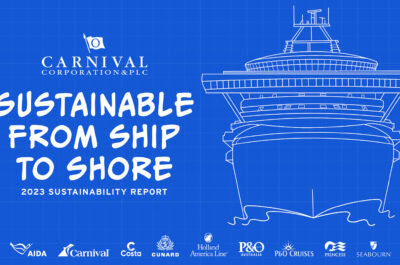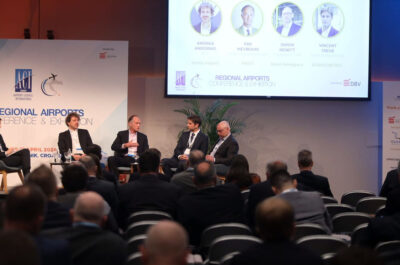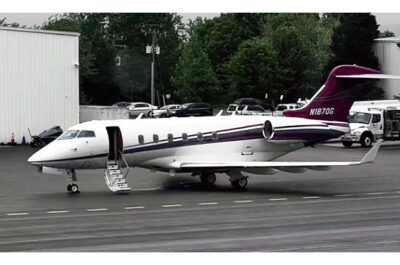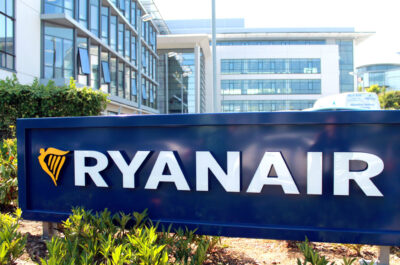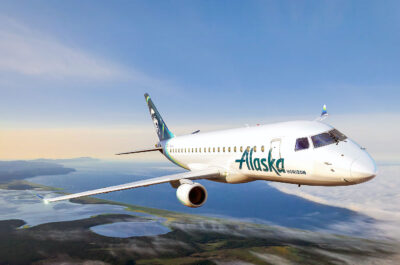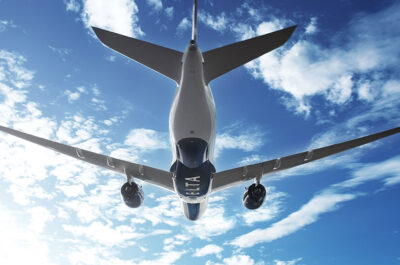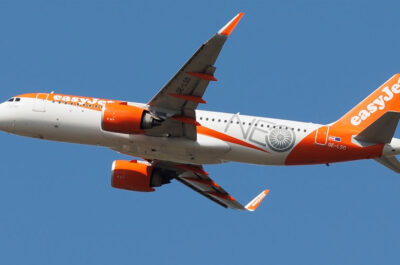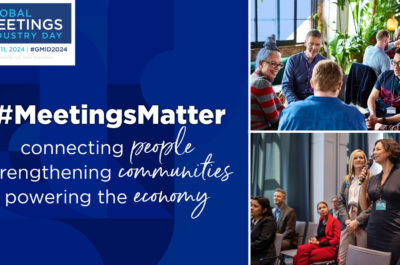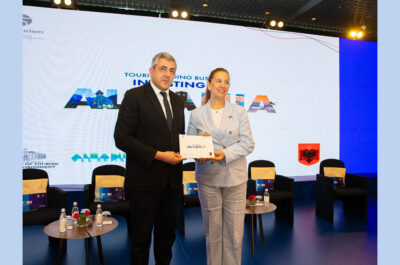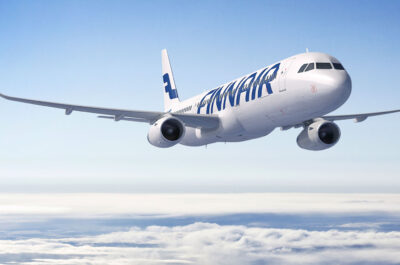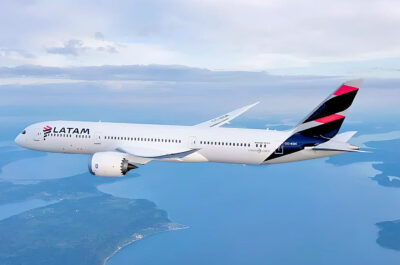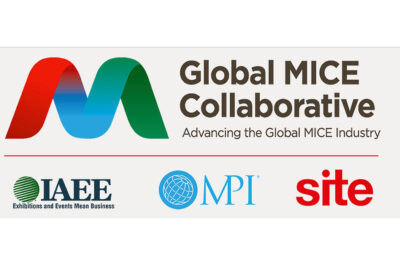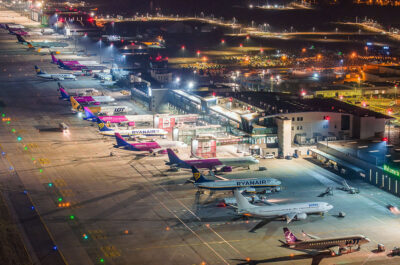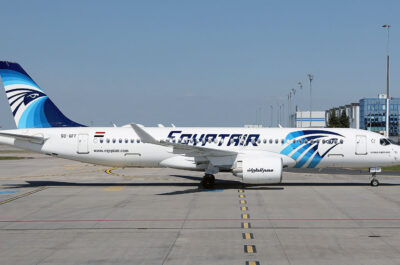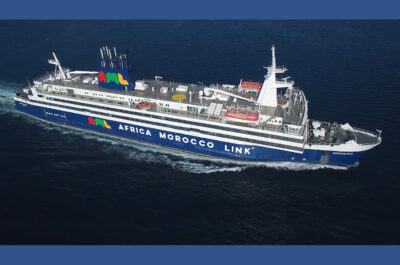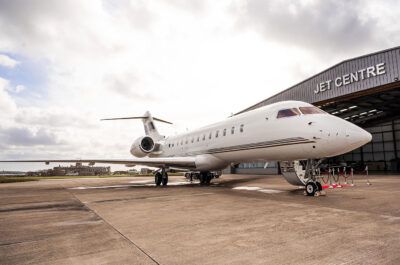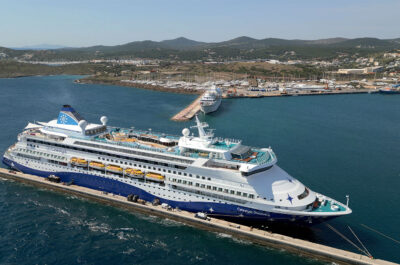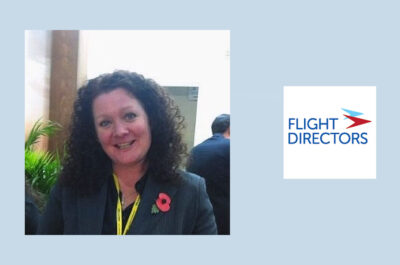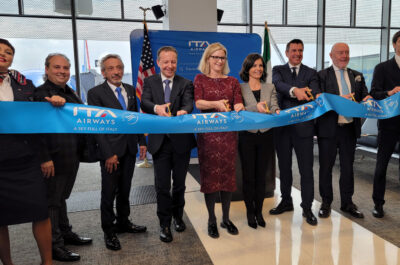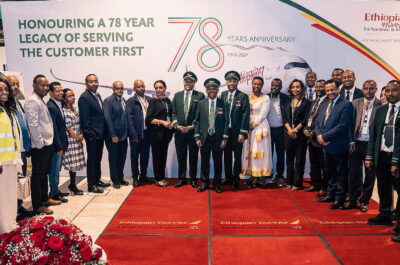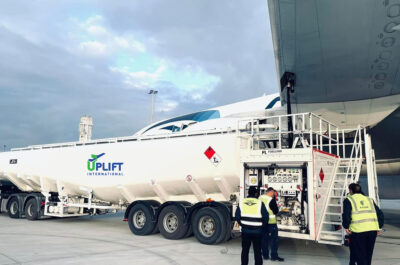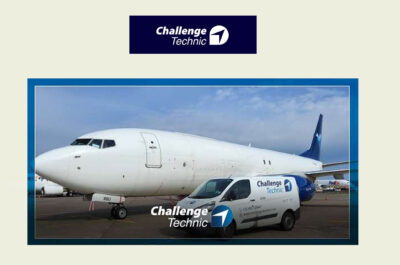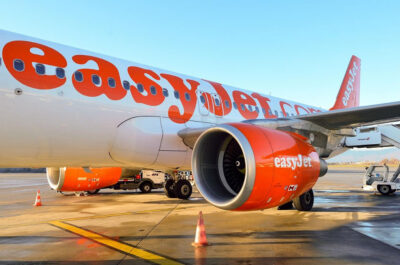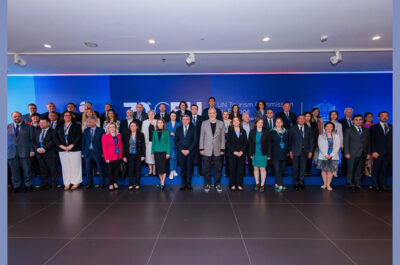…

Good morning to those in Geneva, Europe and Africa. Good afternoon and evening to those joining from the Middle East and Asia Pacific. And thanks to all for joining us.
Our outlook announcement is a chance to have a look at the challenges that the industry is facing on a quarterly basis. Aviation is a dynamic global industry. That is a great thing because it means that we are on the forefront of providing the connectivity that drives today’s global economy. But it also means that airlines are subject to being buffeted by a constantly changing environment.
Since we made our last forecast, the environment has changed dramatically. In December we forecast that the industry would make $3.5 billion profits -a 0.6% margin- in 2012. That was dependent on Europe avoiding the sovereign debt problem turning into a full blown banking crisis. If it did, we feared that 2012 could bring losses in excess of $8 billion.
Today we are revising our central scenario downwards to $3.0 billion. I won’t go into all of the detail of the $500 million downgrade: you can read more detail in the press release. But I would like to briefly discuss some of the main trends behind the revision.
On the good news side, it appears that a worsening of Europe’s sovereign debt crisis has been avoided for now. Of course we will continue to watch very closely. But this has been replaced by rising oil prices as the number one risk that the industry faces. We have revised the average oil price for the year to $115/barrel (Brent Crude) based on the consensus forecast. This is up from the previously forecast $99/barrel. In this scenario, fuel will rise to 34% of average costs. Last year it was 30%. And the year before that it was 26%. Overall, the industry fuel bill will rise from our previous expectation by $15 billion to $213 billion. Without a doubt, this is the most significant factor affecting the downward revision.
The impact of this on the bottom line would have been much worse had it not been for some important mitigating trends.
First, we have seen very tight capacity management. In our December forecast, we foresaw capacity expanding by 3.1%, ahead of demand growth of 2.9%. The forward schedules of airlines now indicate that more robust demand growth -3.6%- will exceed a capacity expansion of 3.2%. Load factors for passenger traffic stood at 76.6% in January which is 2 percentage points higher than the pre-recession levels.
Freight load factors are more difficult to manage as 40% of freight travels in the belly of passenger aircraft. And cargo load factors remain about 6 percentage points below the 2010 peak.
But freight markets appear to have stabilized -albeit at very weak levels. And we are seeing some signs of optimism among purchasing managers. This should link to an uptick in air cargo during the second half of the year.
The impact of both of these -tighter supply and demand conditions and stabilized cargo markets- is yield growth. In December we did not see any yield growth in 2012. Now we are seeing the possibility for 2.0% growth in both cargo and passenger yields. That will help to push up industry revenues to $633 billion. But I should stress that if we are only expecting to make $3.0 billion on $633 billion in revenues. So the net margin is just 0.5%.
Let’s look at a few regional highlights.
For North American carriers we see $900 million in profit. Compared to the $1.1 billion that they made in 2011, it is the smallest deterioration of profits among the major regions. This is primarily due to the very small increase in capacity.
Asia Pacific will deliver the highest absolute profits at $2.3 billion. This is $200 million better than we expected in December, but still less than half the $4.8 billion that the region’s carriers made in 2011. Within the region there is great diversity. Markets connected to China are showing positive signs. But I was in India only last week where the industry continues in crisis.
European carriers are by far in the most difficult situation -facing losses of $600 million. Many of the continent’s economies are in deep recession, air travel is highly taxed and we see the additional costs of the EU ETS coming.
The Middle East carriers will see prospects improve by $200 million from our previous forecast to $500 million. Slower introduction of capacity has boosted load factors and the markets for long-haul travel have been relatively robust.
Prospects for Latin American and African carriers are unchanged- $100 million in profit and $100 million in loss respectively.
Fragile: Moving back to the global level, I must emphasize that the industry is fragile. Global forecasts are for GDP to grow by 2% this year. Historically, if GDP falls below 2%, the industry returns a collective loss. So it would not take much of a shock to turn our very modest profit projection to a net loss.
Indeed that shock could be oil. Many commentators are pointing to scenario where the situation with Iran escalates to the point where oil supplies through the Straits of Hormuz are affected. Under such a scenario, should oil prices spike to $150/barrel in the second half of the year, we would see a full year average of $135. Such a shock would link to a fall in GDP growth to 1.7% and we could see losses in excess of $5 billion.
Of course we are hopeful that such a situation could be avoided.
But whether it is oil or some other shock, the point that I need to emphasize is that, despite a decade of restructuring, investment and efforts that have improved labor productivity by 67%, increased fuel efficiency by 23%, and cut sales & distribution unit costs by 21%, this industry limps from weak profits to losses at a collective global level.
Governments need to take notice. Not because we want any special treatment, but because we need a policy environment that enables competitiveness to replace the tax and restrict approach of many governments which holds us back. Aviation should not be a cash cow, but rather a powerful draught horse playing a key role in economic development and expansion.
The connectivity that aviation provides enables global business. As governments seek to boost employment and economic growth, the time has never been better for a re-think of policies in places like Europe, North America, and India to unleash aviation’s tremendous potential. And my message to policy-makers is that this is not a theoretical argument. Governments from Singapore, South Korea and China have long seen aviation as a strategic pillar in their economic success. That means supporting aviation’s success with efficient infrastructure, reasonable taxes and a regulatory environment that supports safe, secure and sustainable operations as well as business competitiveness.
Environment
And lastly, a few words on environment. Tomorrow the Aviation and Environment Summit will open here in Geneva. The entire value chain will gather to look at ways to move towards our agreed and ambitious goals of:
– Improving fuel efficiency by 1.5% annually to 2020
– Capping net CO2 emissions from 2020 with carbon neutral growth
– And cutting net carbon emissions in half by 2050 compared to 2005 levels
And I know that you are well aware of our four pillar strategy to turn the targets into reality:
– Investing in new technology
– Better Infrastructure
– More efficient operations
– And globally harmonized positive economic or market-based measures
The last pillar has taken the global spotlight as states react to Europe’s unilateral and extra-territorial intent to include international aviation in its ETS.
I would just like to reiterate that the last thing that the industry wants is a trade war. And we will do everything possible to help facilitate a successful outcome at the International Civil Aviation Organization-ICAO.
Through the leadership of ICAO, a set of principles for market based measures is already agreed. And there is a commitment to deliver proposals for a global scheme by the next ICAO Assembly, which is only a year-and-a-half away. I believe that Europe is coming to the understanding that a global solution is what is needed. Indeed, ICAO has featured prominently in their most recent discussions of the topic.
To move the process forward I repeat my call for Europe to be a sincere participant in making the ICAO process successful. I chose these words very carefully because, if I understand the international mood correctly, non-European states will be looking for some proof of Europe’s sincerity. That will mean doing more than simply reiterating its determination to implement its scheme even as it professes to support a negotiated agreement through the ICAO process.


































































































